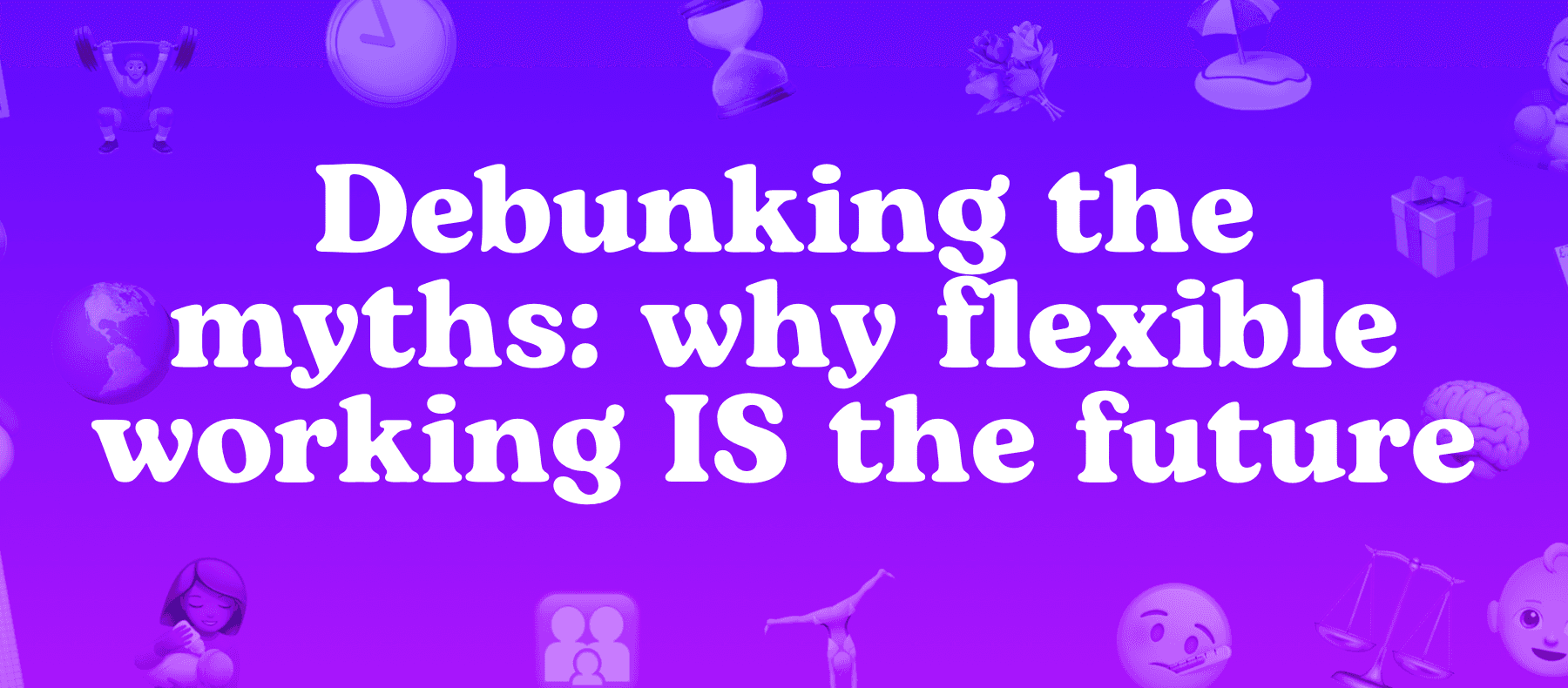Debunking the myths: why flexible working IS the future
In this blog, Flexa CEO and co-founder Molly Johnson-Jones debunks flexible working myths and shares more on why flexible working IS the future.
15th May 2024

I recently stumbled upon an article in the City AM that left me utterly baffled and, quite frankly, a little bit enraged. The piece, discussing the new Flexible Working Bill and the right to request flexible working from day one, made some bold claims about why flexible working simply doesn't work. While I don’t think the flexible working bill is all it’s cracked up to be, the article made some pretty bold statements. As the founder of Flexa, a company that champions flexible working and helps people find companies that offer it, I felt compelled to address these misconceptions head-on.
@mollyjohnsonjones Is it 1984? #wfh #flexibleworking #equality #careertiktok @The Flexatarians 🤸♂️
♬ original sound - Molly Johnson-Jones
Myth 1: "You're welcome to request flexible working, but the answer will be no."
First and foremost, the article stated that at City AM, employees are welcome to request working from home, but the answer will always be a "good humoured no." This is not only a terrible approach to employee well-being, but it's also fundamentally illegal. Under the new Flexible Working Bill, employers must assess each flexible working request on a case by case basis and provide legitimate reasons for denial. Blanket refusals are simply not acceptable.
Myth 2: "Mandating office work creates equality and freedom."
The article also argued that requiring everyone to work from the office removes the "paradox of choice" and therefore creates equality and freedom. This couldn't be further from the truth. Mandating office work doesn't create equality; it creates homogeneity. For many people, including working parents, caregivers, those with disabilities or chronic conditions, and individuals facing discrimination, flexible working arrangements are essential for levelling the playing field and enabling them to thrive in their careers.
Myth 3: "No company has nailed flexible working."
Another outrageous claim made in the article was that no company has successfully implemented flexible working. This is simply false. Companies like Atlassian have gained significant recognition for their "Team Anywhere" approach, which allows employees to work from anywhere in the world. At Flexa, we feature hundreds of companies that have excelled at offering flexible work arrangements, with employees rating their experiences highly. To suggest that flexible working is an unattainable goal is both inaccurate and discouraging.
Myth 4: "Flexible working creates a divide between office workers and those who can't work from home."
The crux of the article's argument hinged on the idea that because some workers, such as delivery drivers and warehouse staff, cannot work from home, flexible working arrangements create inequality. While it's true that not all jobs can be done remotely, this argument fails to acknowledge that differences in working conditions have always existed, even when office work was the norm. It's disingenuous to use this point to argue against flexible working, especially when it has the potential to greatly improve the lives of so many.
The truth: flexible working improves lives
The reality is that flexible working has transformed the lives of countless individuals. It has opened up opportunities for people with disabilities, promoted gender equality by allowing women to balance their careers and family responsibilities, and enabled men to take on more household and childcare duties. Flexible working has the power to create a more inclusive, equitable, and fulfilling world of work.
It's important to note that I'm not against companies choosing to work from an office five days a week if that's what they believe is best for their organisation. However, they need to be transparent about this choice and not try to justify it with false claims about societal impact or equality.
As we move forward, it's crucial that we continue to challenge misconceptions about flexible working and advocate for the right of every individual to work in a way that allows them to thrive.